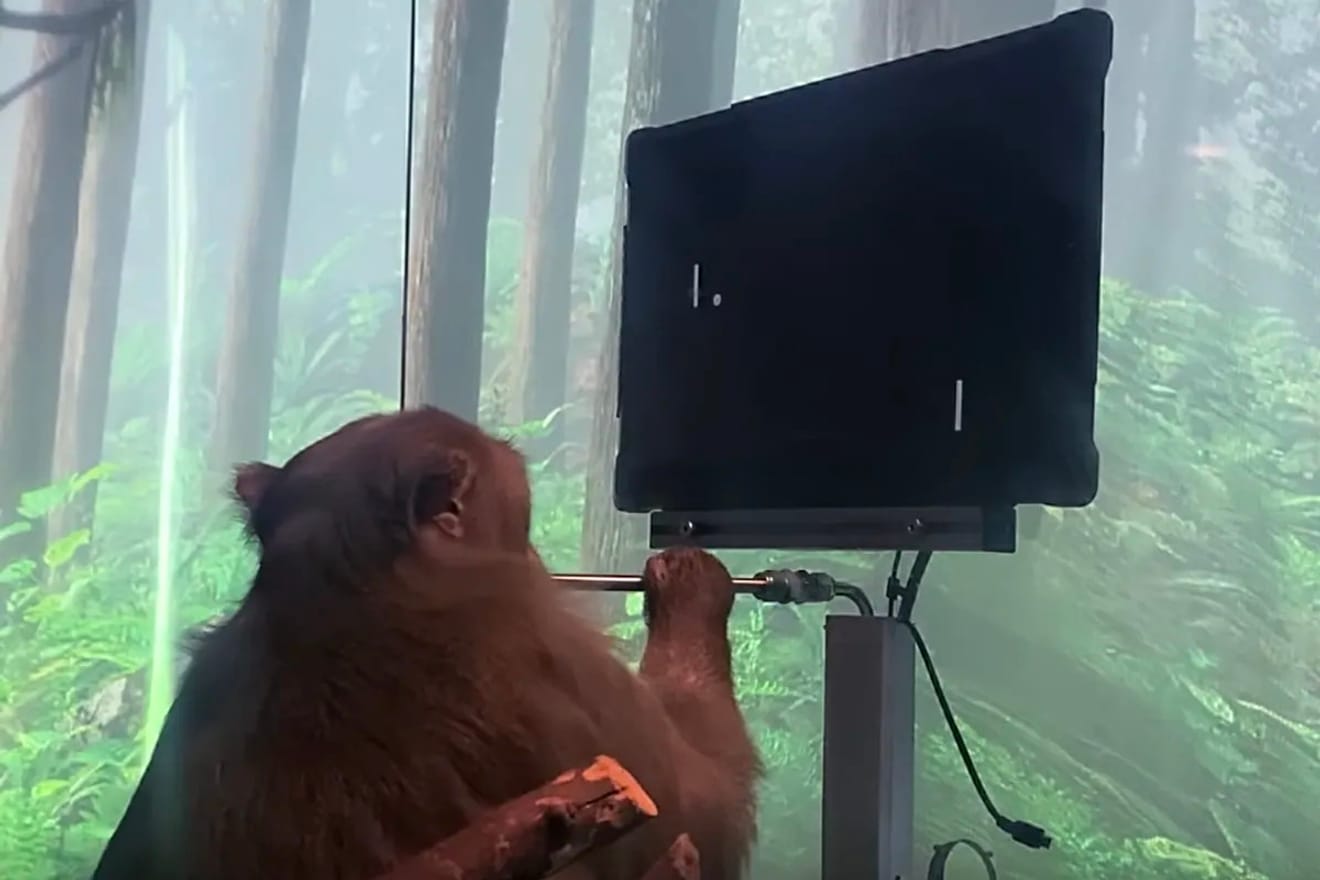"We know that humanity could decide to hunt and kill all chimpanzees."
Elon Musk, in an interview with Fox News on the 14th, mentioned his plan to develop TruthGPT, an AI that seeks truth, and conveyed his concerns about AI's future attitude towards humans in a more intuitive way to the public than any previous explanation, using the chimpanzee example. This expression feels more realistic given that his neuroscience startup Neuralink, founded in 2016, has faced criticism and controversy over animal abuse for allegedly causing extreme pain and death to monkeys during the process of implanting computer chips in their brains.

A monkey with a Neuralink implanted in its brain. The Verge
As its name suggests, TruthGPT reveals a technical connection with ChatGPT, and it is considered to be at a very early stage of planning, not yet a viable third option compared to Google's Bard and Open AI's ChatGPT. However, his logic for the necessity of developing this new AI – that creating an AI that strives to understand the essence of the universe will reduce the likelihood of it annihilating humans, who are an interesting part of the universe – is quite persuasive. This is because Elon Musk's primary concern regarding AI is its potential to destroy civilization.
On the same day, the 14th, in an interview with CBS, Google CEO Sundar Pichai predicted that all products of all companies will be impacted by the rapid advancement of AI, warning that society needs to prepare for the evolution of this technology. However, he admitted that Google does not fully understand how AI produces certain answers, and when questioned by the host about how they could release AI into society in such a state, he responded by saying that we don't fully understand how the human mind works.
In February 2000, at an international conference on the global environment held in Mexico, Nobel laureate in Chemistry and Dutch atmospheric chemist Paul Crutzen declared that we are now living in the Anthropocene. The Anthropocene is a geological epoch characterized by the significant impact of humanity on the Earth's environment, with the Industrial Revolution serving as a starting point. The concept denotes a period where humans exert a significant influence on the global environment. Throughout the course of human civilization's development, the power to destroy the Earth's environment or determine the survival of other species has stemmed from human intelligence. However, now that Artificial Intelligence (AI) has emerged, we find ourselves in a situation where we've released this unfamiliar and potentially most threatening entity into society without sufficient experience in handling it.
On the other hand, Sam Altman, head of Open AI, appeared on Lex Fridman's podcast on March 26th and stated that their goal is to achieve the emergence of Artificial General Intelligence (AGI) that surpasses the current level in the shortest time possible. He explained that since the moment AI gains superintelligence could occur suddenly and rapidly, the best course of action for humanity is to quickly create AGI, one step ahead of current AI, and then, during the long period before reaching superintelligence, develop AI that is friendly to humans.
These three individuals, whose names are frequently mentioned in the ongoing AI war across the globe, share a common interest in the topic of human life alongside AI. However, we must remember that the ultimate objective of their narratives is to create AI, a computing system that exhibits specific behaviors. This innovative model is relentlessly machine and data-centric, and individuals who were considered important in the previous world may increasingly be depicted as providers of behavioral inputs to satisfy the data appetite of increasingly autonomous systems. Ironically, because of this, it will become even more critical to refocus Musk's interest in and discussion of truth back on humanity. We need to discuss what criteria and methods can be used to help people whose jobs are becoming obsolete to reaffirm and more actively exercise their agency. Will humans still be the ones who give meaning to their experiences? And what should be the topics of institutional mechanisms and communities that help us not forget this awareness?
Branding is a declaration that you are on the same path as your target customers. Perhaps we are currently witnessing three different facets of AI algorithm branding based on the survival of the human species. Which algorithm do you prefer among Musk's 'shifting focus to space for human preservation', Pichai's 'social adaptation in the age of misinformation', and Altman's 'timeline for developing human-friendly AI'?
*This article is the original content published in the Electronic Times Column on April 24, 2023.*
References
Comments0